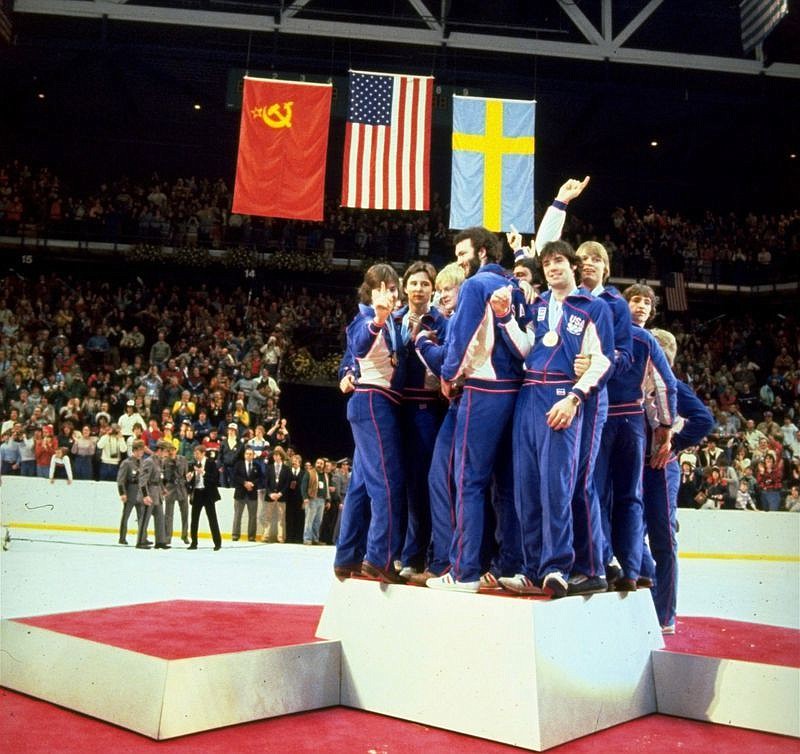- December 13, 2025
-
-
Loading

Loading

Few sports champions over the past 50 years have earned the right to lead with bravado more than Mike Eruzione.
The captain of the 1980 U.S. Men’s Olympic Hockey Team, Eruzione scored the game-winning goal to bring down the Evil Empire-esque Soviet hockey team at the Lake Placid games. This was the game memorialized by the famous Al Michaels “Do you believe in miracles? Yes!” call on TV. At the medal ceremony two days later, Eruzione, standing on the podium, famously waved over his 19 other teammates to join him on the stand.
The Eruzione name remains a big deal even 42 years later. So much so I eagerly accepted an invitation to interview Eruzione in Tampa, when he was in town for a Special Olympics torch-lighting ceremony in early June. What better person to talk about leadership than the captain of the ultimate David vs. Goliath triumph?
Eruzione, 67, offers some vital leadership nuggets and pieces of wisdom. But what really stood out in our 30-minute conversation is that he leads with anything but bravado.
Consider this story he retold about the previous weekend. Eruzione, along with his seven-year-old grandson, went to the liquor store around the corner from his house in Winthrop, Massachusetts, outside Boston, to get some wine for a Memorial Day barbeque. Eruzione has pretty much lived his whole life in Winthrop.
“T.J, looked up at the clerk and said, ‘Excuse me, sir, do you know my pop-pop is famous?’” Eruzione says with a chuckle. “And I looked at my grandson and said right away, 'T.J., we don’t say that.’”
While he may cringe at his grandson’s bragging, Eruzione also recognizes his place in sports history and what the 1980 U.S. Hockey team means for millions of people. “I don’t need anyone to know who I am,” Eruzione says. “If it comes out in conversation, it comes out in conversation. But I don’t promote me.”
Ditto for Eruzione’s belief on leadership: the best leaders he’s played with and seen are the ones who lead by example; are humble and generous with praise; and who, above everything else, emphasize team over individual accomplishments.
I don’t think you wake up and one day and say I’m going to be a good leader. Being a good leader is based on your personality. A good leader is someone who is a good person, a good teammate and a good friend, someone who works hard, someone who your teammates respect on the ice and off the ice, and on the field and off the field.
Herb is like your dad. You know how love your dad, but you hate your dad, because he will make you do the things you don’t want to do? That was Herb. But the most important thing is we trusted Herb, and we respected Herb. And if you are a leader, I don’t care what business you are in, if the people you lead don’t respect you and don’t trust you, you are in trouble. Two of the qualities Herb had right away were trust and respect.
He was a lot friendlier in the movie. (Kurt Russell plays Brooks in the 2004 Disney movie Miracle.) In real life he was a lot more intense. But that’s how coaches coached in the 70s. My high school football, baseball and hockey coaches throughout my years challenged and pushed you everyday.
Herb knew my personality — and he knew I just went with the flow. When I was made captain, it was just about being yourself. I’ve been around a lot of successful people, and sometimes, the more success they get, they change and become someone different. In my case, when Herb made me captain, I think he knew I wouldn’t become somebody different. But even though I was captain, Herb still threatened to cut anybody, which is just the way he coached.
We had a team of leaders. I’ve always said I was a captain among captains. It was easy to be in a room full of leaders. You consider yourself one of them – but you don’t separate yourself from them.
I learned old-fashioned values. That was a big thing with my dad. He taught me that if you can’t respect yourself, if you can’t respect your friends, if you can’t respect people, then you are not a good person or a good leader. These are values I saw in Herb that my dad had told me about all the time.
Going into my senior year of high school, I was a pretty good athlete in three sports, and my dad always told me, ‘don’t lose sight of who you are. Don’t think you are any better than anybody else. And treat people the way you want to be treated.’ Those are qualities I grew up with and still have today. And that makes you a great leader, to not waver from those values.
I haven’t changed. Nothing really bothers me Nothing really fazes me. I just enjoy life. But I don’t wake up in the morning saying ‘I’m going to be a good leader.’ I wake up in the morning and say ‘I’m going to be a good person.’
The important thing for me is to stay true to who I am. If we didn’t win (the Gold Medal) I’d still be living in Winthrop, I’d still be married to the same girl, I’d probably have more kids. I wouldn’t have the money I have, income-wise, because I wouldn’t be doing the things I’ve be doing. But why change?